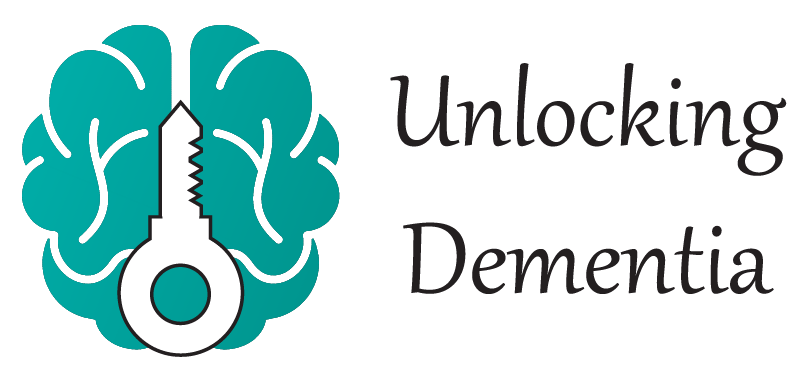Generally, dementia is often classified into three major components to determine the progression of the disease (early, middle and late) and is commonly used within the medical field. Additional systems or methods have been introduced to further clarify some of the stages into substages. These various systems or methods are used by clinicians and care professionals helping patients and their family to understand how this disease progresses and what to expect in the next phase. All systems or methods used to determine the stages of dementia are correct and often it is a personal choice for the clinicians and care givers which one is used.
Each person with dementia progresses at their own rate and one system or method for determining the stages of dementia may not fit as well as another system or method. Depending upon the location of dementia in the brain, type and severity of dementia, and other medical conditions that may play a part in the progression of this disease, the lines between stages become blurred. Talk with the person’s physician about the diagnosis and treatment plans and how this scale may be incorporated.
In the 1980’s, Dr. Barry Reisberg from New York University (NYU) developed the Global Deterioration Scale (GDS), also called the Reisberg Scale, which consists of seven major clinical stages to help further define the stages of progression. This scale is global and used as a method to categorize the various stages into a more universal measurement and doesn’t account for individual differences and variations.
In the GDS, the seven stages are further classified into two different categories: Stages 1-3 are considered the pre-dementia stages, and stages 4-7 are the dementia stages. Beginning with stage 5, an individual cannot survive without help. This scale, especially helpful for caregiver, specifies details at each individual stage and provides information about what to expect at different stages.
Stage 1 is considered No Impairment, and without symptoms. Dementia is not detectable and there are no apparent memory problems or other symptoms of dementia.
Stage 2 is considered Very Mild Decline or age-related memory impairment. Family members or the patient may notice some memory problems like misplacing objects or forgetting names. There is still no evidence of memory issues when clinically examined. The person continues to interact well with normal living activities and social situations.
Stage 3 is considered Mild Cognitive Decline, or mild cognitive impairment where cognitive deficits become apparent. A decline in performance at work becomes noticeable and new situations are harder to grasp. A person may get lost going to a new place or reading something new is not comprehended as easily. During a clinical cognitive exam, concentration and memory may noticeably be impaired. The patient may also notice changes, but more inclined to ignore or deny them or attribute the changes to ageing. Often mild anxiety may be noticed by family members, social friends and co-workers.
Stage 4 is considered Moderate Cognitive Decline at which time there is a lowered awareness of current events, memory lapses in personal history and difficulty travelling to new places or even around town. Personal finance management is often seen as the inability to balance a check book or difficulty paying bills. Patients usually strongly deny any impairment and emotionally their expressions are reduced or flattened. Often they tend to withdrawal from challenging situations at home, work or socially.
Stage 5 is considered Moderately Severe Cognitive decline and some assistance is required for daily activities. Depending upon the type of dementia, the patient may need help choosing clothes, staying on track for activities or helping with cooking or cleaning. Personal hygiene is still important to them, but they may need gentle reminders to complete tasks. Clinical evaluations will often show a loss of current information about themselves like events planned in the future, names of people they have met, or even their own address. Major life events still are intact, but current events or less important information may be harder to recall. Orientation to date, day, time and place is often forgotten or confused.
Stage 6 is considered Severe Cognitive Decline and at this stage, a person may forget the family names including the spouse, however, the patient may still know they are married and have children. They also may be able to differentiate between familiar and unfamiliar faces. They are usually not aware of current events or their surroundings. Counting to or backward from ten often requires assistance. Daily activities need more assistance especially with decision-making like clothes and food choices, putting on clothes and brushing teeth, and depending upon the type of dementia may require assistance with motor functions and incontinence. Sleep habits may change either as lessened or excessive sleep, or sleep cycle disruptions like mixing day and night. Personality and behavior changes become more apparent including delusions, hallucinations, anxiety, agitation or aggression, obsessive behavior and loss of will.
Stage 7 is considered Very Severe Cognitive Decline where the individual begins to lose speech and may utter only guttural sounds. Toileting and feeding require assistance, and the ability to walk declines. Vision is impacted and their field of vision blurs or narrows to a very small point just in front of them. Loud sounds and sudden touch can startle and even agitate them easily. It is apparent that there is a disconnect between the body and brain at this point. Often the only stimulus to a person with very severe cognitive decline is music or dance.
